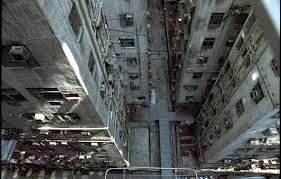Trying to explain to my Chinese girlfriend why I refer to
the Great Leap Brewery as the “Ellis Island” of Beijing took some time and
effort. First, I had to explain what the
hell Ellis Island was, then its impact on American history and immigration, and
finally why the Great Leap resembled this famous gateway to America. Once the analogy made sense, she certainly concurred. Go to GL on any given night and here
languages from all over the world. Hear
English in every accent imaginable and take some time to soak up some
internationalism in this famously provincial megacity.
All of this unfolds while lao wei and Chinese scarf down one
of the best burgers that I have ever been lucky enough to eat. That’s right….I said “ever”. I know…I know, but trust me. You can find some great hamburgers in China if
you just know where to look. However,
the beer is a little lackluster and overpriced, but you can’t have everything.
Great Leap is one of the first stops for any foreigner “fresh
off the boat” from home. (That is how
expatriates refer to newcomers) It was
one of the first places that I went to after arriving in Beijing, and a trip to
the GL usually includes at least one fresh-faced, idealistic foreigner who’s
ready to experience all China has to offer; after they have one more American-style
burger of course. Though the food is
always comforting, the real wonderful part of the experience remains the fact
that the other diners don’t stare at me, because they too are likely culturally
exhausted lao wei in the Middle Kingdom, looking for a reminder of their homes
across the ocean.
Since the opening of its Sanlitun branch, the
restaurant/brewery has gained a cult following among Chinese and a hub-like atmosphere
for foreigners. It is my Chinese
girlfriend’s favorite restaurant, so naturally she had her birthday dinner
there. Even foreigners that don’t hail
from the west, such as Korean and Japanese expats, use the brewery as their
unofficial base of operations. Sometimes
I joke that they’re going to start shuttle services between PEK (Beijing
Capital Airport) and the Great Leap. I
should buy a bus and get a Chinese driver’s license and make a killing. The phenomenon reinforces the idea that in
China, all foreigners belong to a single, relatively homogeneous class unto
themselves. Not inferior or superior in
anyway, just different. There are Chinese
and foreigners and not much in between.
The Chinese wait staff specializes in the dialect of
Chinglish spoken by tourists and expats trying to master the linguistic difficulties
of Mandarin. Long story short, they all
have the patience of Job. Imagine a
bunch of picky foreigners yelling, “Wo bu yao pickle,” at you all day
long. I’d lose it. And I must say that it is nice to go to a
restaurant and not have to yell, “fuian,” to get a waiter to get off their
cellphone and pay attention to me. So
comps to the GL for that.
One of my favorite jokes to make is that a police raid at
the Great Leap would get half the illegal foreigners living in Beijing, and
this isn't far from the truth. In the
choppy waters of Beijing, sometimes it’s nice to have an international port of
call that helps fresh off the boat lao wei to adjust to their new home. Most will just have their passports stamped
and visas checked, but others at the GL are going through the naturalization
process just like Ellis Island’s immigrants of yesteryear.














